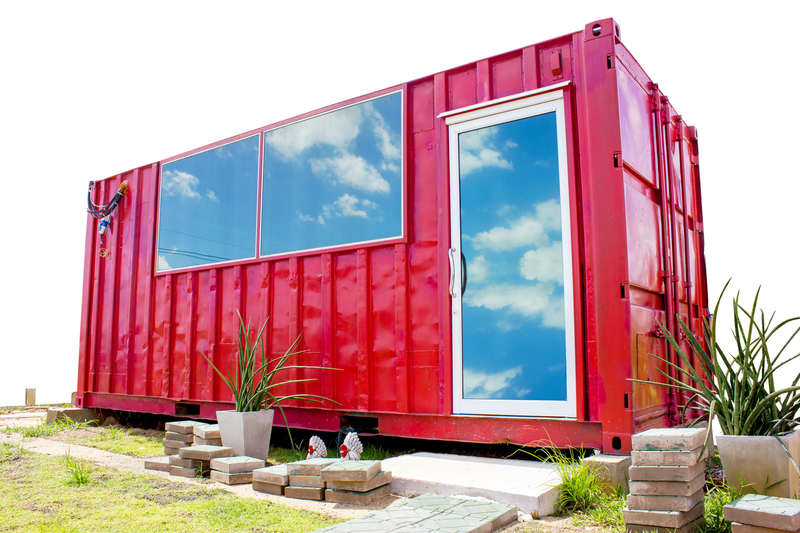Engaging Children in the Recycling Process: Inspiring Future Eco-Stewards
Recycling is a crucial part of maintaining our planet's health and sustainability. But to truly make a difference, it's essential to involve the next generation early on. Engaging children in the recycling process not only fosters environmentally conscious habits but also empowers kids to become environmental advocates. This comprehensive guide explores the best strategies, activities, and tips for making recycling fun, educational, and meaningful for children of all ages.

Why Involve Children in Recycling?
Children are the stewards of the future. By teaching them about recycling from a young age, we instill essential values, such as responsibility, resourcefulness, and respect for nature. Involving children in the recycling process offers a wide array of benefits:
- Builds lifelong eco-friendly habits: Early engagement means children are more likely to carry these habits into adulthood.
- Encourages critical thinking: Sorting recyclables helps kids learn to observe details and make informed decisions.
- Promotes teamwork and responsibility: Participating in family or classroom recycling routines teaches collaboration and shared duties.
- Raises environmental awareness: Kids become aware of waste and the importance of reducing landfill use.
- Makes learning fun: Recycling activities can be creative, hands-on, and even competitive!
Children and recycling are a powerful combination for shaping a greener tomorrow. But how do we get kids genuinely interested and invested in the recycling process?
Understanding the Basics: How Recycling Works
Before diving into activities, it's essential for children to grasp the basic principles of recycling. Use simple language, relatable examples, and visuals to explain:
- What is recycling? Reusing old materials to make new products, like turning newspapers into new paper.
- Why do we recycle? To save energy, protect wildlife, reduce pollution, and conserve natural resources.
- What materials can be recycled? Paper, cardboard, certain plastics, glass, and metals like aluminum cans.
- The journey of recyclables: From the recycling bin to sorting facilities, processing centers, and back to store shelves.
Visual learning tools, such as infographics and videos, can help explain these concepts in an engaging and memorable way for kids.
Creative Ways to Engage Children in the Recycling Process
Children learn best through experience and play. Here are practical approaches and activities to get kids excited about recycling in your home, classroom, or community!
1. Make Recycling Hands-On and Interactive
- Sorting Games: Set up bins for different materials and have kids race to sort everyday items correctly. Use colored bins and large labels for visual cues.
- Recycling Relays: Turn sorting into a fun relay race at parties or classroom events. Teams compete to sort recyclables fastest and most accurately.
- DIY Recycling Stations: Let kids decorate and label recycling bins, making them feel ownership over the process.
- Recycled Crafts: Use clean recyclables for art projects--build robots from boxes, musical instruments from cans, or collages from magazine clippings.
2. Teach Through Storytelling and Media
- Read Books About Recycling: Choose age-appropriate stories and non-fiction books that introduce recycling heroes and concepts.
- Watch Documentaries or Cartoons: Select short videos or cartoons explaining the recycling process or depicting environmental adventures.
- Create Recycling Stories: Encourage children to write or illustrate their own tales about recycling superheroes or earth-saving missions.
3. Involve Kids in the Entire Recycling Journey
- Family Recycling Routines: Assign children specific roles, such as bin monitor or material detective, to make recycling a family teamwork effort.
- Field Trips: Visit local recycling centers to see what happens after materials leave the curb.
- Home Waste Audits: Challenge children to observe and count what your household throws away, identifying ways to reduce and recycle more.
4. Connect Recycling to Real-World Impact
- Track the Family's Progress: Use charts to monitor how much you recycle each week or month, and set improvement goals.
- Community Cleanups: Participate in or organize neighborhood cleanups, collecting recyclables along the way.
- Upcycling Projects: Turn old jars, bottles, or boxes into planters, organizers, or toys to show waste can be given new life.
- Fundraise for Environmental Causes: Collect cans and bottles for deposit refund programs, and donate proceeds to a local environmental group.
Age-Appropriate Recycling Activities
Children of different ages are capable of engaging with recycling in unique ways. Here's a breakdown of activities and teaching methods by age group:
-
Preschoolers (Ages 3-5):
- Simple color-coded sorting games
- Basic stories about recycling and nature
- Crafts using recycled paper, boxes, and safe plastics
- Sing-along recycling songs
-
Early Elementary (Ages 6-8):
- Helping empty household recycling bins
- Looking for recycling symbols on products
- Classroom recycling competitions
- Starting a classroom garden with recycled containers
-
Upper Elementary (Ages 9-12):
- Conducting home or school waste audits
- Organizing recycling drives or poster contests
- Exploring advanced upcycling crafts
- Researching local recycling policies
-
Teens (Ages 13+):
- Leading school or community recycling programs
- Volunteering at local recycling centers or events
- Advocacy campaigns for improved recycling practices
- Social media awareness projects about sustainability
Tips to Make Recycling Stick
Use Positive Reinforcement
Praise and rewards reinforce recycling habits in children. Celebrate milestones, display their art from recyclables, or let them choose a special eco-friendly family activity.
Encourage Questions and Exploration
Let children ask why certain things are recyclable, or what happens to items after being recycled. Research answers together to foster curiosity and deeper understanding.
Lead by Example
Children imitate adults. When they see parents, teachers, or community leaders actively recycling, they are more likely to do the same. Always model eco-friendly behaviors.
Get Schools and Communities Involved
Support school programs that teach about recycling. Join or start afterschool eco-clubs, and participate in local green initiatives. The more children see recycling as a normal, community-wide activity, the stronger their commitment will be.
Common Challenges and How to Overcome Them
- Confusion Over What is Recyclable: Use easy-to-understand reference guides or posters, and regularly review items together.
- Inconsistent Recycling Rules: Explain that rules may differ by city or region. Stay updated on local guidelines.
- Lack of Motivation: Keep activities fun and varied, and incorporate games or friendly competitions.
- Limited Access to Recycling Bins: Make sure bins are available in convenient locations at home, school, and community settings.
Educational Resources and Tools for Kids
- Online Interactive Games: Websites and apps allow kids to learn about recycling through play.
- Printable Worksheets and Color Pages: Activities designed for different age groups to reinforce concepts.
- DIY Workshop Kits: Available from museums or environmental organizations to encourage hands-on learning.
- Community Events: Look for recycling festivals, workshops, or guest speakers at libraries and schools.

Empowering Kids as Recycling Champions
Every child can be a recycling champion. Empower them to spread the message at school, home, and in their neighborhoods. Encourage kids to:
- Be peer role models: Show younger friends and siblings how to recycle correctly.
- Advocate for recycling: Write to local officials or speak at community forums about improving recycling access.
- Innovate: Come up with creative solutions, like designing better bins or inventing new ways to reuse waste.
When children feel heard and respected, their ideas can inspire adults and create lasting change in the recycling movement.
Conclusion: The Lasting Impact of Engaging Children in Recycling
Engaging children in the recycling process is more than just a household task--it's a vital investment in our planet's future. By making recycling an exciting, accessible, and ongoing part of daily life, we inspire the next generation of eco-conscious citizens. Through fun activities, positive reinforcement, and community involvement, children can develop lifelong habits that benefit both their local environment and the larger world.
Start today! Set up a recycling station, plan a craft, or share a story about recycling with a child in your life. Each small step helps create a ripple effect, empowering kids everywhere to take care of the Earth.
Together, families, schools, and communities can build a brighter, cleaner future by nurturing enthusiastic young recyclers. Let's engage them, inspire them, and watch them lead the way!